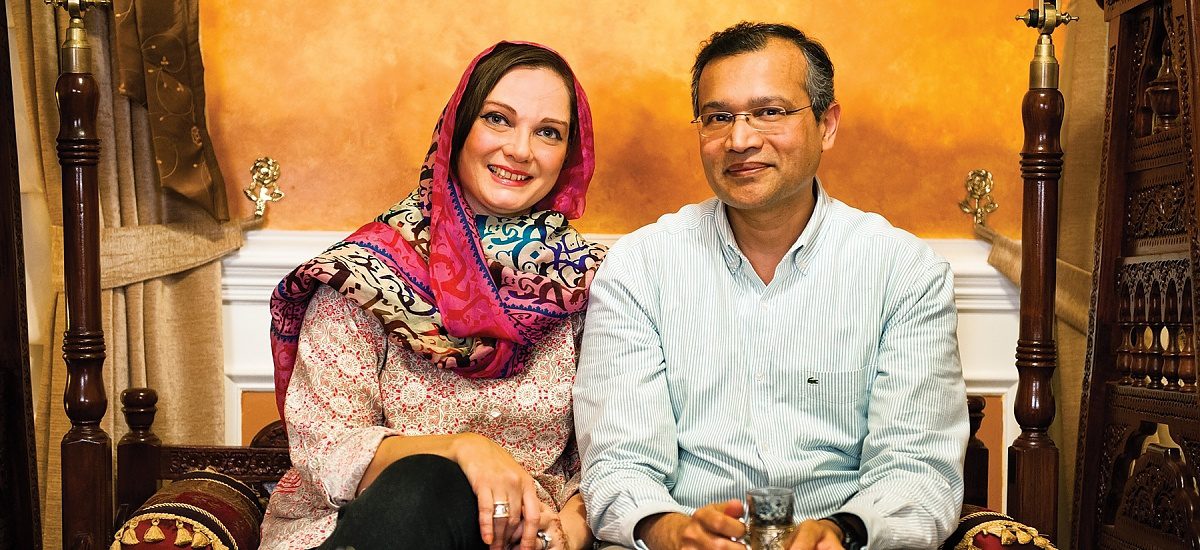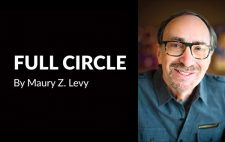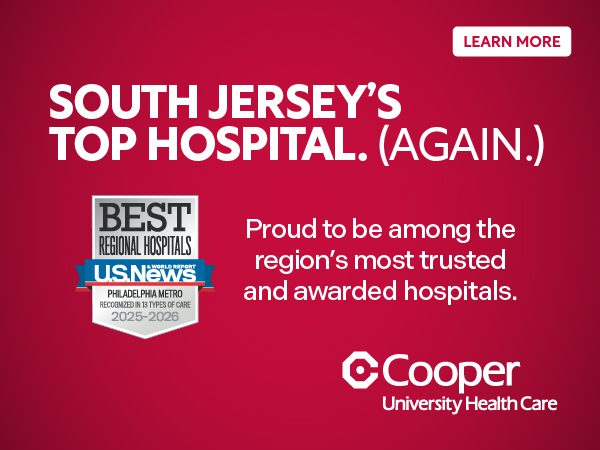It isn’t the best of times to be Muslim. But the many South Jerseyans who follow Islamic beliefs say now is the time to speak up and educate the world about what their faith truly means.
It was a typical autumn day when Cherry Hill’s Mona Lari had carpool duty, driving her two small passengers – ages 7 and 9 – to a community festival. Lari, a mother, realtor and active community volunteer who follows the religion of Islam, says the young pair caught her attention when they began discussing a recent mass shooting. It was a moment, she recalls, that changed her life.
“The little girl said, ‘I hope and pray that it wasn’t a Muslim,’ and my heart just sank,” says Lari. “Part of me just died. That was my reality check. Now we have 7-year-olds who are worried about being called terrorists.”
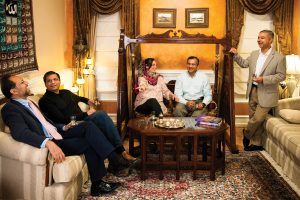 Lari considers herself an Islamic activist for peace and tolerance, which she admits takes her out of her comfort zone. She began this role symbolically almost two years ago, when she started wearing a hijab in public. In Lari’s mind, the gesture tied her actions and deeds to her religious beliefs. And although she says the head coverings she wears provide inner strength and peace, she knows they alone cannot shield her community from a culture of fear that seems to be gaining momentum with every news cycle.
Lari considers herself an Islamic activist for peace and tolerance, which she admits takes her out of her comfort zone. She began this role symbolically almost two years ago, when she started wearing a hijab in public. In Lari’s mind, the gesture tied her actions and deeds to her religious beliefs. And although she says the head coverings she wears provide inner strength and peace, she knows they alone cannot shield her community from a culture of fear that seems to be gaining momentum with every news cycle.
In a sense, it’s history repeating itself, says Sylvia Chan-Malik, an ethnic studies professor at Rutgers University-New Brunswick.
While less extreme, what Muslims are experiencing today is reminiscent of what Japanese-Americans endured during World War II or how Jews were gradually dehumanized in Nazi Germany, says Chan-Malik, a Muslim herself who is writing a book about American Islamic women. Although terrorism is not new to the national conversation, the tone has changed since 9/11. Earlier this century, leaders were careful not to blame all Muslims for the extremists who carried out suicide missions, she notes. But in the aftermath of several high-profile massacres around the world and as the presidential primaries heat up, this is no longer the case.
“People who may have harbored certain ideas all of a sudden feel emboldened to say things that may not have been said in the past, because it wasn’t politically correct,” she says.
Jamil Mohsin, a Cherry Hill radiologist, is well aware of the shift in the political environment. He says that while his sixth-grade twins at Rosa International Middle School have non-Muslim friends who are fiercely protective of them, they still know they may be stared at and asked uncomfortable questions about their personal beliefs any time terrorism is brought up in school.
“They dread every 9/11,” says Mohsin, who has lived in the United States for 26 years.
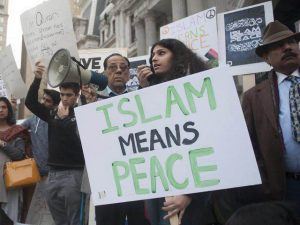 In an effort to demonstrate how Muslims truly live in America – especially South Jersey – the diverse Islamic community here has united and publicly vowed to take positive actions to represent their faith and combat the horrific stereotypes portrayed in the media. To do this, they have agreed to partner with any and all faiths, law enforcement or community groups willing to work with them.
In an effort to demonstrate how Muslims truly live in America – especially South Jersey – the diverse Islamic community here has united and publicly vowed to take positive actions to represent their faith and combat the horrific stereotypes portrayed in the media. To do this, they have agreed to partner with any and all faiths, law enforcement or community groups willing to work with them.
Last December, within days of the San Bernardino massacre, 10 area mosques and cultural centers with little history of working together on big-picture issues announced their intention to enact “concrete measures to combat the ideologies of violence and extremism that falsely profess themselves to be Islamic.” Among three proposed actions, the group – representing organizations in Camden and Burlington Counties – has pledged to work closely with law enforcement officials, to monitor the religious education and activities of Muslim children, and to increase community outreach.
As a first step, the Pakistan-American Society organized a peace rally at the steps of Philadelphia’s City Hall late last year. For organizers who had never attended a public demonstration before, it was a successful event – not only for inspiring some 200 people to gather with less than a week’s notice, but also for bringing the community’s intentions to light.
Mahshameen Ahmad was among those moved to take the day off from work and excuse her children from school to attend the rally.
“I honestly feel the situation is so dire that mainstream America needs to hear real Muslim voices and not what the media is projecting based on a very tiny percentage of people who have out-stepped the boundaries of Islam,” says Ahmad, a Voorhees mother of three. “There is no version of Islam that allows for such hate.”
Media reports of the rally showed participants holding signs with slogans like “Islam Means Peace” and “Terrorists Have No Religion” and expressing condemnation of recent terrorist attacks in Paris and San Bernardino, as well as sympathy and prayers for the victims of the heinous acts. In the aftermath, leaders of area churches and synagogues reached out to the community to express solidarity and offer help, says Owais Lari, Mona’s husband and the president of the Pakistan-American Society of South Jersey and the Islamic Center of South Jersey (ICSJ).
Owais says the 10 Islamic groups set their three goals after extended conversations late last year. There was strong agreement to prioritize monitoring the kinds of messages being passed down to Muslim children in both their homes and mosques, he says. To that end, the groups have already started to engage teens in discussions about ways to counter the messages of hate and intolerance currently being disseminated by extremist organizations.
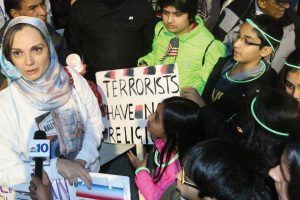 The leaders figure teens are more social-media savvy and more susceptible to such views, says Imran Bhutta, a Moorestown resident who organized one of the first teen forums in Mount Laurel.
The leaders figure teens are more social-media savvy and more susceptible to such views, says Imran Bhutta, a Moorestown resident who organized one of the first teen forums in Mount Laurel.
“The idea is for us to listen to the viewpoint of younger members of our community on current events,” Bhutta explains. “We want to try to understand how some of the messages that terrorist organizations give can find a foothold in some individuals.”
The groups will also try to reach out beyond their insular community to spread education about true Islam, says Owais. The peace rally was just a beginning. Late last year, members of South Jersey Jewish Catholic Muslim Dialogue met with Congressman Donald Norcross (D-1) in support of the Muslim community and to discuss Syrian refugees. The Dialogue is a long-running interfaith group established through the Jewish Community Relations Council (JCRC) that brings together faith leaders to dispel myths, fight prejudice and stereotyping, and to help educate the larger community.
The efforts continued last month with a forum titled “Extremism, Radicalization and Islam: Why are there so many acts of violence in the name of Islam?” The offering, which featured Islamic scholar Morshad Saami Hossain, the imam of the Voorhees Islamic Center, was co-sponsored by the Muslim American Community Association, the Jewish Catholic Muslim Dialogue, the Camden County Board of Freeholders and the JCRC.
David Snyder, executive director of the JCRC, says the interfaith community is happy to give guidance and to help local Muslims spread the word.
“They’re looking for any and all opportunities to build bridges and educate those willing to work with them,” notes Snyder. “We are proud and privileged to be providing this outlet for them.”
Currently, the Islamic organizations regularly meet with law enforcement and government officials to assess new ways to work together. The progress is furthest along in Palmyra, home to the ICSJ, where the police have started increasing patrols around the mosque, says Owais. Moreover, besides plans for interfaith meetings, the mosque has offered to host flu and health awareness clinics and is open to discuss other ways to both serve the community and open the mosque to its non-Muslim neighbors.
As Owais sees it, South Jersey’s Muslims came to this country – like others before them – to take part in the American dream. It has been difficult to listen to those who disgrace their religion, comparing Islamic values to heretical and murderous beliefs. But they have come to accept that their role is to show the ways of true Islam.
“Now we feel under the spotlight but, in a way, something good can come out of that,” Owais says. “We are getting far greater cooperation than we ever imagined. Churches, synagogues, the JCRC – they are all helping us. We are here to stay, and we welcome the spotlight.”

